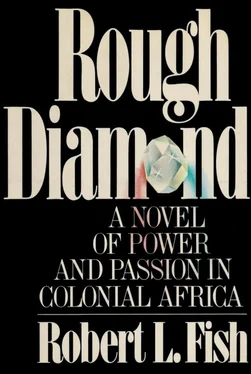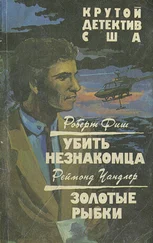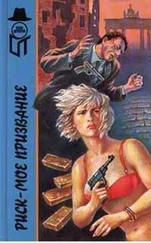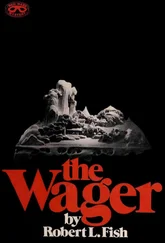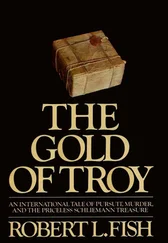Barney Barnato, entering the prison after the many weeks it had taken him to get permission for the visit, wrinkled his nose at the smell. It was worse than anything he could recall, worse than the rancid, fetid odors in the slums of the East End where he had been raised, worse than the stench of offal and human waste that had greeted him when he had first come to Kimberley. Yet Solly Loeb, as well as most of the other prisoners he saw, seemed to be in a rather cheerful frame of mind. Solly was far from his usual dapper self, but the open-necked shirt and trousers dirty from the weeks in the jail did not seem to perturb him at all.
“You get used to not changing clothes every day,” he said, smiling. “You also — fortunately — even get used to the smell.”
“How about the food?” Barney asked.
Solly’s smile broadened. “Some of the wives have been, given permits to visit. My own wife brought in a box of cigars and a roasted duckling under her bustle; Grey’s wife came with a sausage wrapped around her waist. And money is a wonderful thing. A pound note here and a fiver there and we can get anything we want. The jailers are more like valets than warders. Not all of them, of course,” he added. “Du Plessis, the head warder, is a monster. He has Kaffirs beaten so we can hear them scream. It’s supposed to intimidate us, to make us frightened. He’s a fool.” He said it contemptuously.
Barney studied his nephew. Solly seemed a lot braver than Barney could ever recall. “Well, I must say you’re taking it well.”
Solly shrugged. “It’s just one of those unfortunate occurrences. The lawyers say the trial will take place in a week or so, and once that nonsense is over with and out of the way, we’ll be out of here.”
Barney stared at him in surprise. “And just what makes you think you’ll be out of here once the trial is over? You can’t possibly hope to be let go without any punishment whatsoever.”
Solly’s look was superior. It was, after all, one more example of his uncle’s innocence.
“Our lawyers told us that all old Kruger wants is an admission of guilt. The old man doesn’t want our blood; what would he do with it? If we admit we were naughty boys, he’ll slap us on the wrist, make us pay something into that ever-hungry treasury of his, and tell us to behave in the future. It’s as simple as that.”
“What!” Barney was shocked. “You’re insane! And so are your so-called lawyers! They had you plead guilty? Guilty? To a charge of treason? Whatever made them, or you, think Kruger would free you, especially after an idiot plea like that?”
Solly looked at him almost with condescension. “Look, Barney. I know you’re on speaking terms with old Kruger, but that doesn’t make you an expert on everything he says or does. Our lawyers know the old man, too, and what’s more important, they know the prosecuting attorney as well. Be reasonable! What would it gain old man Kruger to make us sit in this stinking hole for a few extra weeks or even months? We wouldn’t be making money, and that means we wouldn’t be paying his taxes, or bribing his officials, or all the hundreds of other things we do every day that keeps the economy of his precious Transvaal from falling to pieces. Half the mines on the Rand have shut down during all this brouhaha. D’you think old man Kruger hasn’t felt the effect of that when he pats his pants pockets? Of course he has! The old man isn’t totally insane, you know.”
“No, but you and your so-called lawyers are! Let me get you proper counsel—”
“No!” Solly’s face got ugly. “Barney, I suppose you mean well, but we’re quite satisfied with the counsel we have now. They were selected by Lionel Phillips, and he knows his way around the corner as well as you do. This is no time to be rocking the boat. Our lawyers have made a deal.” He dropped his voice although there was nobody near who might have overheard. “We plead guilty and we get off with a fine and a slap on the wrist. That’s the deal. Don’t interfere.”
Barney considered Solly for long seconds. He looked around the barren prison yard, seeing the men there, some playing cards, some laughing over some incident. Fools! he thought, and looked back at his nephew. “If that’s the way you want it. Is there anything I can get you?”
“Not a thing.”
“Well… In that case, I’ll be going. Is there anything you’re involved in at the office that needs handling?”
“No, my boys have everything under control.” Solly smiled. “I get regular reports, even in here.”
“The Pretoria branch of the Rand Club, eh? Well, in that case…” Barney nodded his head rather abruptly and walked from the yard where he and Solly had been talking, his prison pass pressed tightly between his fingers. How like Solly to believe anything a man like Lionel Phillips said, or the lawyers that Phillips had selected! How could a nephew of his, flesh of his flesh, blood of his blood, be that damnably stupid? What a pity Solly had been born a Jew! Solly would probably have given everything he possessed to be able to sew that foreskin back in place and take his rightful position among the elite of Johannesburg and the Rand Club, among the machers , the big people, the respectable Christians! He must get down on his knees every night and thank God he wasn’t born with a big hooked nose, or tight, curly hair! Still, the boy was his sister’s son, and he had to do everything possible to save him from his own foolishness. But what could be done in face of such stubbornness?
Behind him as he left the yard, Solly watched his uncle’s back with a look of disdain on his handsome face. Barney Barnato offering him advice! What a joke! If Barney knew one half of what went on in Jo’burg, even as far as his own businesses were concerned, he’d be a lot wiser man than he was. A lot unhappier, too. But the fact was that Barney Barnato was not half as bright as he thought he was, or Solly Loeb would not have been able to feather his own nest so comfortably. And Barney didn’t even have a suspicion! And now he wanted to interfere in something he understood even less than he did business. With a sneer Solly put Barney and Barney’s worries from his mind and started back toward his cell. There was a bottle of bubbly there, as well as half of the roast duckling his wife had brought — if the rats hadn’t eaten it while he was wasting his time with his uncle Barney…
Judge Gregorowski had been called in from Bloemfontein in the Free State to preside at the trial of the sixty members of the Reform Committee, as well as the four men considered the ringleaders in planning and executing the raid: Colonel Frank Rhodes, John Hays Hammond, Carl Luckner, and Lionel Phillips. The trial was scheduled to be held at the Pretoria Town Hall, since the courthouse was considered too small for the large number of defendants and the crowd that was expected to attend. Barney, sitting in the first row of spectators with Fay at his side, gritted his teeth to see the defendants, on benches before him, with Solly among them, laughing and joking among themselves, chatting away quite as if they were merely passing time waiting for the next race at the racecourse, rather than facing trial on a most serious charge.
“Idiots!” he muttered angrily. “Suicidal idiots!”
Fay reached over and took his hand, squeezing it. “Relax, darling.”
“Relax! How can I relax? Can you imagine pleading guilty on a charge of treason. Treason? They’re insane! No proper court in the world would even permit such a plea!”
There was the bang of a gavel, a momentary hushing of the large crowd, and Judge Gregorowski entered and took his place on the bench. The four ringleaders, standing in the movable dock that had been put in place by the black-uniformed warders, turned to face him; the other defendants lounged to their feet as if bored by the entire proceedings. Gregorowski was a large heavy-set man without a hair on his head, and with a huge hooked nose and small beady eyes that looked at the crowd as if suspecting that they, too, probably should have been in the dock as well as the four. After a brief inspection of his audience, he motioned to the prosecuting attorney to begin the proceedings. The prosecutor came to his feet and began reading from a paper, droning the names of the defendants one by one. When he had finished this portion of the indictment, he came to the charge. The crowd fell silent. He spoke in Afrikaans, which most of the defendants could not understand.
Читать дальше
